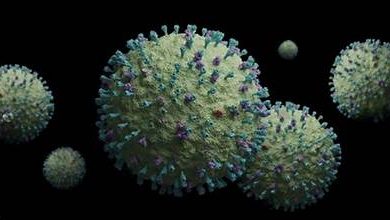
Breast cancer is a serious health problem that affects millions of women globally. Proper information and early detection can greatly improve survival rates. Here are five breast cancer survival strategies that every woman should be aware of.
1. Understand Your Risk Factors
In order to avoid breast cancer, it is essential to understand your risk factors. Mutations in BRCA1 or BRCA2 are examples of genetic variables that can greatly raise your risk. Another factor is a family history of breast cancer. Age, thick breast tissue, and a personal history of breast cancer are other risk factors. Healthcare providers should have a conversation with women about their risk factors in order to create a customized preventive plan.
2. Regular Screening and Mammograms
One of the best methods to find breast cancer early on is to be screened regularly. Mammograms should be scheduled annually for women over 40. Screenings may need to occur earlier and more frequently for people with greater risk factors. Self-examinations and clinical breast exams can also aid in early detection.
3. Know the Signs and Symptoms
Early detection is possible when women are aware of the signs and symptoms of breast cancer. Common symptoms include:
- A lump or mass in the breast
- Swelling of all or part of the breast
- Skin irritation or dimpling
- Breast or nipple pain
- Nipple retraction (turning inward)
- Redness or flaky skin on the breast or nipple
- Nipple discharge other than breast milk
Women should immediately consult their healthcare provider if they notice any of these symptoms.
4. Maintain a Healthy Lifestyle
Breast cancer risk can be decreased by leading a healthy lifestyle. Maintaining a healthy weight, engaging in regular exercise, and eating a balanced diet full of fruits, vegetables, and whole grains are crucial. Preventive measures also include abstaining from smoking and limiting alcohol intake.
5. Genetic Testing and Counseling
Genetic testing is advised for BRCA1, BRCA2, and other mutations in women with a strong family history of breast cancer. Genetic counseling can assist in interpreting test results and directing choices on prophylactic procedures and increased screening, among other preventive treatments.
6. Hormone Replacement Therapy (HRT) and Breast Cancer Risk
One association between hormone replacement therapy and a higher risk of breast cancer is that it is frequently used to treat menopausal symptoms. Women who are thinking about HRT should talk to their healthcare professional about the advantages and disadvantages. To reduce the risk of breast cancer, alternative therapies for menopausal symptoms should be investigated.
7. Breastfeeding Benefits
It has been demonstrated that breastfeeding lowers the risk of breast cancer. The protective impact increases with the length of time a woman breastfeeds. There are a plethora of additional health advantages of breastfeeding for both mother and child.
8. Environmental Factors and Breast Cancer
The chance of developing breast cancer can rise when exposed to specific environmental conditions. These include substances that alter the hormones, radiation, and pesticides, which are present in certain plastics and personal hygiene items. Women should be conscious of these concerns and take precautions to reduce their exposure, like buying natural cosmetics and organic meals.
9. Stay Informed About New Research
Research on breast cancer is always changing. Making educated selections regarding their health might be facilitated for women by keeping up with the most recent advancements. To stay up to date on new discoveries and therapies, women can think about joining breast cancer support groups or subscribing to reliable health websites and publications.
10. Emotional and Psychological Support
Whether you’re dealing with breast cancer yourself or you’re helping a loved one, it can be emotionally and psychologically exhausting. It is essential to have access to mental health resources, support groups, and counseling services. Help with coping and general quality of life can be achieved with emotional support.



